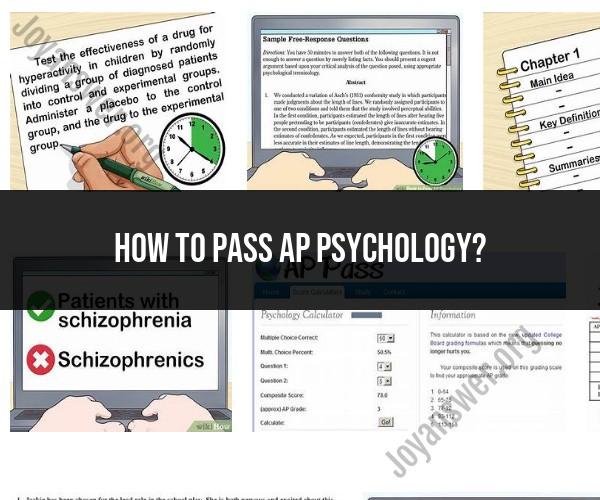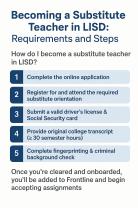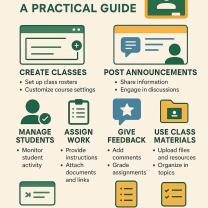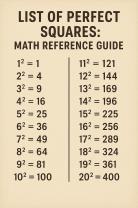How to pass AP Psychology?
Passing AP Psychology requires diligent study and effective preparation. Here are some tips and study advice to help you succeed in the course and on the AP exam:
1. Understand the Course: Start by thoroughly reviewing the course syllabus and understanding the topics and objectives covered in AP Psychology. This will help you create a study plan.
2. Organize Your Notes: Keep well-organized notes throughout the course. Summarize key concepts, theories, and terms. Use different color-coding or highlighting techniques to make important information stand out.
3. Read the Textbook: Read the assigned textbook chapters and supplementary readings. Pay close attention to explanations, examples, and case studies that help you understand complex concepts.
4. Use Online Resources: Utilize online resources such as websites, videos, and psychology forums to complement your learning. Websites like Khan Academy and Crash Course Psychology offer valuable content.
5. Practice with Flashcards: Create flashcards for key terms, theories, and psychologists. Use flashcards as a quick review tool to reinforce your memory.
6. Take Good Notes in Class: During class lectures and discussions, take thorough and organized notes. Ask questions if you don't understand something, and participate actively in class discussions.
7. Study Groups: Form or join a study group with classmates. Collaborating with others can help you reinforce your understanding and learn from different perspectives.
8. Practice with Past Exams: Obtain past AP Psychology exams or sample questions from reliable sources. Practice answering these questions under timed conditions to get a feel for the exam format.
9. Review Class Assignments: Review any assignments, quizzes, and projects you've completed in class. They may contain valuable information and concepts that are relevant to the exam.
10. Practice FRQs: The AP Psychology exam includes both multiple-choice questions and free-response questions (FRQs). Practice writing responses to FRQs to improve your ability to articulate your knowledge effectively.
11. Create Study Guides: Develop comprehensive study guides that cover all major topics in the course. Condense your notes and textbook readings into these guides for quick review.
12. Use Mnemonics: Create mnemonic devices or acronyms to remember lists, terms, or concepts that are challenging to memorize.
13. Stay Consistent: Set a regular study schedule and stick to it. Consistency is key to retaining information and preparing for the exam over time.
14. Test-Taking Strategies: Familiarize yourself with test-taking strategies such as process of elimination for multiple-choice questions and time management during the exam.
15. Seek Help When Needed: If you're struggling with specific topics, don't hesitate to seek help from your teacher, a tutor, or online resources. Addressing your weaknesses can significantly improve your performance.
16. Manage Stress: Practice stress management techniques such as deep breathing and mindfulness to stay calm and focused during the exam.
17. Take Care of Yourself: Prioritize your physical and mental well-being. Get enough sleep, eat healthily, and stay hydrated to ensure you're at your best on exam day.
18. Review Before the Exam: In the days leading up to the exam, dedicate time to review your study materials and practice questions. Don't cram the night before; focus on reinforcing your understanding.
19. Stay Confident: Believe in your ability to pass the exam. A positive mindset can boost your performance.
Remember that success in AP Psychology requires consistent effort and dedication. By following these tips and staying committed to your studies, you can increase your chances of passing the course and performing well on the AP Psychology exam.













